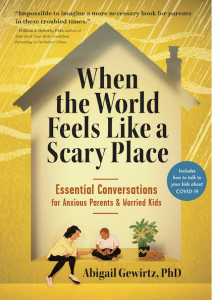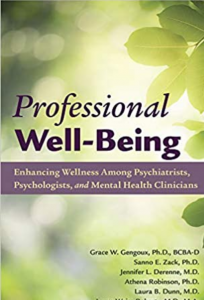Is Your Child Lonely?
 Over two-thirds of the 11-17 year olds surveyed by Mental Health America felt stressed out about loneliness. Read more ›
Over two-thirds of the 11-17 year olds surveyed by Mental Health America felt stressed out about loneliness. Read more ›
 Over two-thirds of the 11-17 year olds surveyed by Mental Health America felt stressed out about loneliness. Read more ›
Over two-thirds of the 11-17 year olds surveyed by Mental Health America felt stressed out about loneliness. Read more ›
 When kids are diagnosed with a learning disability we naturally worry about how it will affect their school performance. What we often don’t think about, but should, is how having a learning disability may affect children emotionally. Read more ›
When kids are diagnosed with a learning disability we naturally worry about how it will affect their school performance. What we often don’t think about, but should, is how having a learning disability may affect children emotionally. Read more ›
 The coronavirus pandemic has affected the mental health of children and teens, and therapists are tapped out and booked up. But that doesn’t mean care is impossible. In fact, caregivers can learn therapeutic strategies to support, reinforce and teach our children healthy coping skills. Read more ›
The coronavirus pandemic has affected the mental health of children and teens, and therapists are tapped out and booked up. But that doesn’t mean care is impossible. In fact, caregivers can learn therapeutic strategies to support, reinforce and teach our children healthy coping skills. Read more ›
 The National Child Traumatic Stress Network has developed a collection of resources to help youth heal after a school shooting.
The National Child Traumatic Stress Network has developed a collection of resources to help youth heal after a school shooting.
Downloadable resources include fact sheets, tip sheets, tool kits and more. Read more ›
 It’s an understatement to say we live in an age of anxiety. Political polarization, school shootings, income inequality, climate issues, sexual harassment, and more—whether it’s on the news or hitting closer to home, it’s impossible to tune out. The problem is, most children can’t put these issues in perspective, and parents, often anxious themselves, can have a hard time talking to their kids without making it worse. Read more ›
It’s an understatement to say we live in an age of anxiety. Political polarization, school shootings, income inequality, climate issues, sexual harassment, and more—whether it’s on the news or hitting closer to home, it’s impossible to tune out. The problem is, most children can’t put these issues in perspective, and parents, often anxious themselves, can have a hard time talking to their kids without making it worse. Read more ›
Compassion fatigue is characterized by physical and emotional exhaustion and a profound decrease in the ability to empathize. It is a form of secondary traumatic stress, as the stress occurs as a result of helping or wanting to help those who are in need. It is often referred to as “the cost of caring” for others who are in physical or emotional pain. If left untreated, compassion fatigue not only can affect mental and physical health, but it can also have serious legal and ethical implications when providing therapeutic services to people. Read more ›
It’s well known that mental health professions are associated with burnout. That risk increases when the general population faces prolonged stress, psychotherapy is in higher demand, and students’ needs—both remote and in-person—are more taxing. Read more ›
 Although data exist to support the notion that physician self-care is correlated with patient care, the culture of medicine has traditionally valued the ideals of self-sacrifice and perfectionism — often to the detriment of clinicians themselves. Read more ›
Although data exist to support the notion that physician self-care is correlated with patient care, the culture of medicine has traditionally valued the ideals of self-sacrifice and perfectionism — often to the detriment of clinicians themselves. Read more ›
 Many of my patients are stressing over—and feeling exhausted by—the same things: uncertainty about travel and social gatherings, trouble focusing and completing tasks, and general burnout, to name a few. We’re all tired, and talking about exhaustion over and over again is, well, exhausting. Read more ›
Many of my patients are stressing over—and feeling exhausted by—the same things: uncertainty about travel and social gatherings, trouble focusing and completing tasks, and general burnout, to name a few. We’re all tired, and talking about exhaustion over and over again is, well, exhausting. Read more ›
 Regulating our emotions is at the heart of our ability to parent the way we’d like. It’s just so easy to get hijacked by our emotions and find ourselves already ten steps down the low road. Read more ›
Regulating our emotions is at the heart of our ability to parent the way we’d like. It’s just so easy to get hijacked by our emotions and find ourselves already ten steps down the low road. Read more ›